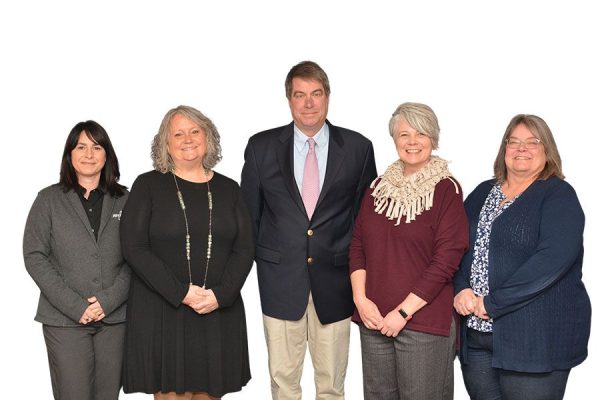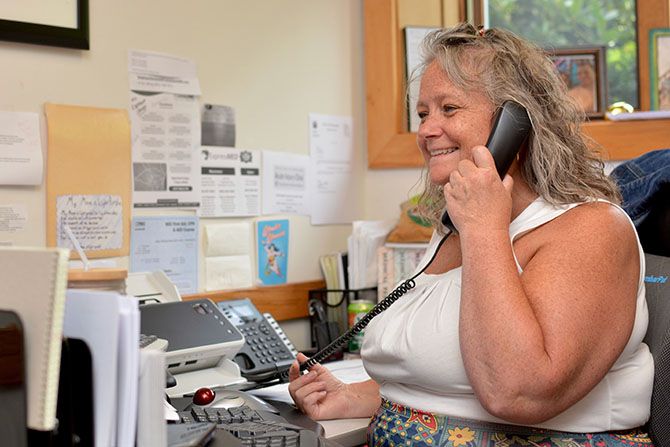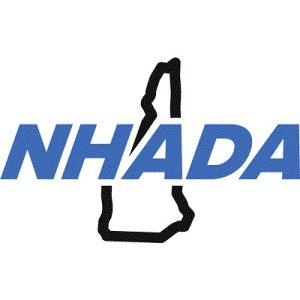The NHADA Workers’ Compensation Trust (WCT) is composed of an amazing team with a combined experience of over 148 years in the workers’ compensation industry! Our professional, experienced staff has made our number one job to train our members to do the right thing when it comes to managing workplace injuries. Because of this goal, our members “do the right thing.”
When we train new members on the workers’ comp process, one of the first topics to cover is: call the nurse. Unfortunately, once a member knows what to do, the call to the nurse part of the process is often the thing they get away from … thinking, “We know what to do, so why do we call?” The call to the nurse is about more than just assistance with referrals and a heads up on a claim, and it’s those reasons we want members to continue with the call to the nurse.
Why Call?
- The call to the nurse is similar to triage with a medical provider. We will cover the basics and gather some important information that will be beneficial to us when we set up and manage the claim:
- Injured worker’s name
- Employer name
- Position at the employer
- Date of injury
- Description of the injury
- Has treatment occurred yet
- Referral for care
- Work status
- As a member of the NHADA — WCT, you are part of the mandatory managed care program. This is a huge benefit to our members and helps us in so many ways, from management of a claim to cost containment. The call to the nurse assists the member and injured worker in navigating the managed care process.
- We use the Windham Managed Care Network of Providers. As part of the managed care program, injured workers are required to treat for their injury within the network. There are a few unique situations where this is not the case; these would be discussed during the call if applicable. The network is built of specialists and gives us the ability to refer the injured worker for specialized care right out of the gate and without the need for a referral from another provider first. Calling the nurse ensures that the best choice for medical care in a specific specialty occurs.
- A common misconception by those that have been injured or those assisting someone that has been injured is “I have to go to the emergency room” or “Let’s get you to the emergency room.” Emergency rooms are for “life-threatening emergencies.” Most occupational injuries that occur do not fit these criteria and, in fact, can be better managed at an occupational medicine clinic, urgent care or a specialist’s office. When minor/acute injuries present in an emergency room, they are not the first to be seen; patients that are more critical jump to the front of the line. An injured worker may be at the emergency room for hours before being cared for, and if another employee went along, then you are now missing two people from the workplace. Non-emergency visits to an emergency room also clog up the system; you do not want to be the reason there is no bed available for someone that needs it more than you. The other huge factor is cost. A simple laceration treated in the emergency room may bill out at over $3,000.00 and, in some cases, over $5,000.00. This same injury managed at an occupational medicine clinic may not even bill out at $500. The call to the nurse will help you make the decision as to where the most appropriate place for medical treatment should occur.
- Employers’ First Reports of Injury need to be filed within five days of the notice of the injury to avoid a fine from the NH Department of Labor. The call to the nurse starts a paper trail. We keep a record of the calls and take notes. When the First Report of Injury arrives in our office, it’s matched with these “intake” notes and becomes part of our file and is helpful to our investigation. Sometimes, we get the call, but the First Report of Injury doesn’t arrive timely; we review our “intake” file regularly, and if an intake hasn’t been matched with a report yet, we make a call to the member to see if we can assist in filing and help avoid a fine.
- Employers with five or more employees must provide temporary alternative/transitional work opportunities to all employees temporarily disabled by a work-related injury or illness. This is per RSA 281-A 23-b. The call to the nurse, as stated, starts a paper trail. When an injured worker has sought medical treatment, the providers are required to fill out an NH Workers Compensation Medical Form. This form is given to the injured worker to share with their employer, and a copy is sent to our office. Receipt of this form even prior to receiving the member’s First Report of Injury allows us to review the work status of the injured worker and reach out to our member to see if assistance is needed with their return to work.
- Not all injuries are simple, and sometimes, the report of what happened can change based on how many parties need to hear the story. This is why we will sometimes ask if there is security footage of the area in which the injury occurred. During the call to the nurse, we may ask you to secure the footage so we can review it. The video footage can be a crucial piece of the puzzle we are trying to put together when investigating and managing a claim.
- NHADA — WCT prides itself in our relationships with the medical provider community and, more so, with our in-network providers. We are lucky to have providers that have long-term employees such as we do. Because of this, we have providers we have known and have been dealing with for years. This is helpful in so many ways, including ease of receiving medical records and billing. The call to the nurse helps us know which provider to follow up with if we haven’t received records yet, as well as allows us to reach out proactively to the provider to share billing information so the medical records and bills arrive timely for a review of the claim. Some providers have more turnover than others and may not be as familiar with our office and our members; in that case, we want to reach out to them as soon as possible to ensure we get what we need and the injured worker doesn’t receive any bills. The call to us helps avoid any issues with missing information.
- In some instances, OSHA may need to be informed of an injury — we will alert you of this during the call.
- All employers are required to notify OSHA when an employee is killed on the job or suffers a work-related hospitalization, amputation or loss of an eye. A fatality must be reported within eight hours. An in-patient hospitalization, amputation or eye loss must be reported within 24 hours.
- Some injuries occur as a result of a safety issue. NHADA — WCT is comprised of our Claims team but also includes our Loss Prevention team. If during the call to the nurse there is a concern of a safety issue causing the injury or that it may be an OSHA issue, Loss Prevention can be alerted and a visit to the member arranged as soon as possible.
The call is referred to as “the call to the nurse,” but in fact, all the members of the NHADA — WCT team are able to take this call if the nurse is not available or is assisting another member. If the call is with the nurse, after the call is completed, the intake notes may be reviewed with other members of the team so they can be alerted of any issues that need attention before the paperwork is filed. In a sense, we are managing your claim for you even before the First Report of Injury has been received.

Your NHADA — WCT Claims Team
Members can be reached by phone at (603) 224-2369
Peter Sheffer
Vice President and Director of Insurances
psheffer@nhada.com
Marta Silakka
Nurse Case Manager
Marta is the one to call for these initial calls.
msilakka@nhada.com
Deb Handrahan
NHADA WCT Claims Supervisor
dhandrahan@nhada.com
Heather Overson
Claims Representative / Road Adjuster
hoverson@nhada.com
Marianne Gourgiotis
Underwriter
mgourgiotis@nhada.com
Anne Marie Fallon
Claims & LP Administrative Assistant
afallon@nhada.com
We are proud that our members are confident in knowing what to do when injuries occur (pat on the back, we trained you). But please remember to give us a call — even if the plan you propose for treatment is perfect, we will get to start that paper trail, and hey, it’s always nice to say hi and speak with you!







